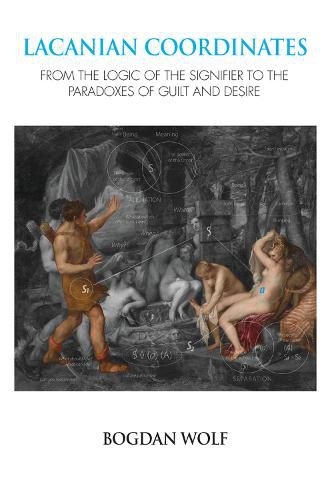Readings Newsletter
Become a Readings Member to make your shopping experience even easier.
Sign in or sign up for free!
You’re not far away from qualifying for FREE standard shipping within Australia
You’ve qualified for FREE standard shipping within Australia
The cart is loading…






Psychoanalysis is an experience of truths and lies in language. It is also a discourse, and a praxis. Lacanian Coordinates takes the reader from the beginning of Lacan’s teaching, from the logic of the signifier and the Lacanian subject, to the drive and object a, qua object a, the paradoxes of guilt, and finally to the desire of the Other, love, and femininity - the themes which are explored and developed in the forthcoming second volume of Lacanian Coordinates. This book explores the points of Lacanian orientation that lead us to the particularity of the subject, and considers whether we find them not solely in the discourse of the universal, to which religion, science and philosophy testify, but also in the analytic experience itself. Psychoanalysis creates conditions for an encounter with an analyst and with words forgotten, neglected, underestimated, yet also bursting with meaning and surprises. Each chapter contributes to this subjective realisation, taking as reference the clinic, the voice of an analysand, and everyday discourse.
$9.00 standard shipping within Australia
FREE standard shipping within Australia for orders over $100.00
Express & International shipping calculated at checkout
Psychoanalysis is an experience of truths and lies in language. It is also a discourse, and a praxis. Lacanian Coordinates takes the reader from the beginning of Lacan’s teaching, from the logic of the signifier and the Lacanian subject, to the drive and object a, qua object a, the paradoxes of guilt, and finally to the desire of the Other, love, and femininity - the themes which are explored and developed in the forthcoming second volume of Lacanian Coordinates. This book explores the points of Lacanian orientation that lead us to the particularity of the subject, and considers whether we find them not solely in the discourse of the universal, to which religion, science and philosophy testify, but also in the analytic experience itself. Psychoanalysis creates conditions for an encounter with an analyst and with words forgotten, neglected, underestimated, yet also bursting with meaning and surprises. Each chapter contributes to this subjective realisation, taking as reference the clinic, the voice of an analysand, and everyday discourse.